Schools' Chemistry Conferences
Our schools' conferences are for students and their teachers interested in finding out more about the cutting edge research happening in the field of Chemistry.
The conferences, usually held on the last Thursday in September, feature LIVE talks and Q&As with researchers from the Department of Chemistry, University of Oxford, and may include guests from other leading institutions across the globe.
Previous conference talks and Q&As, where available, can be accessed below.
Our 2025 Autumn Chemistry Conference was recorded and you can catch up on the talks and links to further Q&As below:
Dr Josef Boronski's talk and Q&A:
Bonding with Metals: Chemistry at the Interface Between Molecules and Materials
Chemists use a variety of models to describe how atoms (or ions) bond to one another. Whilst these models can be useful, they sometimes fail to accurately represent the true nature of chemical bonding in exotic molecules, particularly those that feature bonds between two (or more) metal atoms. Molecules like these, with metal-metal bonds, are fundamentally valuable as they provide us with new ways to think about the nature of the chemical bond. Beyond this, because we can also consider molecules with metal-metal bonds as tiny fragments of bulk metal, we can also use them to provide new insights into the reactions of metals that are otherwise difficult to observe (e.g., corrosion, oxidation). In this talk, Dr Josef Boronski described recent advances in the field of metal-metal bonding, and how this work is helping us better understand some of the Periodic Table’s most unloved metallic elements.
About the speaker:
|
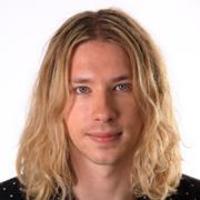
Dr Josef Boronski is an Assistant Professor in the Department of Chemistry at Imperial College London and is interested in the chemistry of the elements from the s-, p-, and f-blocks of the Periodic Table. Before this role, Josef graduated with an MChem from the University of York in 2017 and subsequently undertook a PhD at the University of Manchester, which he completed in 2021. In the same year, Josef was awarded a Junior Research Fellowship at St John’s College, Oxford. Here, he initiated a programme of research into the chemistry of beryllium. In 2023, Josef won the Dalton Emerging Researcher Prize. |
Dr Shurui Miao's talk and Q&A:
From Sparkling Water to Great Landmarks
From iconic cathedrals to the vast mountain ranges of Dolomites, solid carbon minerals are abundant and enduring features of our world. The natural chemical reaction among carbon dioxide, water, and divalent alkaline-earth metals (mainly magnesium and calcium) is a fundamental component of the Earth's carbon cycle. Recently, scientists have recognised that this natural process can be accelerated by hundreds of folds to help address the alarming increase in atmospheric carbon dioxide levels. By injecting carbonated freshwater into porous volcanic rock, 95 % mineralisation is achieved within 2 years. Unlike most ongoing carbon storage methods that rely on impermeable cap rocks to trap gases and supercritical fluids, mineralisation offers the potential for secure and scalable storage of carbon in the solid form. Nevertheless, despite its prevalence, many scientific questions surrounding carbon mineralisation remain unanswered. This talk focused on the research by Dr Shurui Miao to study the behaviour of relevant species under confinement, and how atomic interactions can inform solutions to global challenges.
About the speaker:
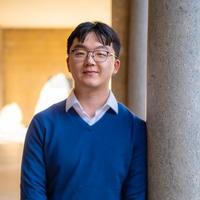
Dr Shurui Miao is the Career Development Research Fellow in Chemistry at St John’s College. Before this role, Shurui graduated in 2018 with a BSc in Chemistry from the University of Sydney, Australia and he continued to pursue his postgraduate studies there. In December 2022, he moved to the University of Oxford joining Prof. Susan Perkin as a postdoctoral research associate. Shurui's work specialises in experimental physical chemistry and his research interests are centered around sustainability and self-assembly processes in solution. Shurui's current research focuses on understanding how carbonate minerals form, which is crucial for carbon capture and storage, mitigating the effects of climate change. |
Our 2024 Autumn Chemistry Conference was recorded and you can catch up on the talks and links to further Q&As below:
Associate Professor Amy Styring's talk:
Science and archaeology - how chemistry can tell us about the human past
“Chemistry and Archaeology… how does that work?” is a common response when Associate Professor Amy Styring tells people of her research in archaeological chemistry. To answer this question, Amy presented some of the insights that scientific techniques can reveal into life in the past, with a particular focus on reconstructing what people were eating and where they lived at various points in their lives. The early medieval cemetery excavated in 2015 in Milton, south of Oxford, provided an interesting local case study, revealing insights into the people living in Oxfordshire more than a thousand years ago.
Further Q&A for Associate Professor Amy Styring
About the speaker:
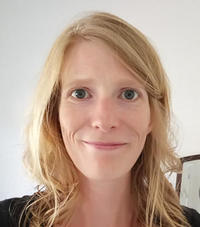
Amy Styring is Associate Professor of Archaeological Science at the University of Oxford. As an archaeological chemist, she is interested in advancing scientific methods that reveal a direct and detailed picture of everyday life in the past, particularly in relation to how people produced their food and the impact that this had on the environment. |
DPhil Calum Patel's talk:
Shaking up fluorine chemistry
From toothpaste to Teflon, fluorochemicals are important molecules widespread in society. Fluorine plays a critical role in medicines to cure diseases, fertilizers for food production, and in the production of Li-ion batteries used in our smartphones. But where does the fluorine come from? For over 200 years, the first step in accessing all fluorochemicals has been the energy-intensive conversion of the mineral fluorspar (calcium fluoride) into toxic and corrosive hydrogen fluoride (HF) gas. Handling and transporting HF to prepare fluorochemicals requires strict safety regulations, and, unfortunately, HF spillages have occurred, often with fatal consequences and detrimental environmental impact.
For the first time, we have generated fluorochemicals without hazardous HF gas. Grinding fluorspar rocks with a phosphate salt using steel balls leads to fluoride release for fluorination chemistry. This mechanochemical approach is a breakthrough and enables the synthesis of critical fluorochemicals, bypassing HF entirely. This talk focused on the research journey underpinning this breakthrough from one of the lead authors, DPhil Calum Patel.
Further Q&A for DPhil Calum Patel
About the speaker:

DPhil Calum Patel completed his Master's degree in Chemistry at Imperial College London under the supervision of Prof. Anthony Barrett. After a summer research placement under the supervision of Prof. Jennifer Love at the University of British Columbia, Calum undertook a twelve-month internship at F. Hoffmann La Roche in Basel. Having experienced the synthetic challenges of late-stage fluorination in drug discovery at Roche, Calum has a keen interest in the development of novel fluorination methods. Calum joined the SBM CDT in September 2020 and completed a rotation in computational chemistry in the Duarte group, before joining the Gouverneur group in May 2021. |
Our 2023 Christmas Chemistry Conference was recorded and you can catch up below:
A brief explanation of what the conference entailed:
Small migratory songbirds are extraordinary navigators: weighing less than 30 grams, they fly thousands of kilometres, alone and at night, ultimately with centimetre precision. To do this they use the sun and the stars, their sense of smell and physical landmarks but they can also perceive the direction of the Earth’s magnetic field – an internal compass.
Despite centuries of theorising, and more than 50 years of research, the mechanism of this remarkable magnetic sense remains tantalising obscure.
In this lecture, open to KS5 (16-19 yrs) Chemistry students, parents/carers, and teachers, Professor Peter Hore discussed the theory that the birds’ magnetic compass relies on a quantum mechanism in their eyes that is much more sensitive than previously thought possible.
We found out how chemistry at the nanometre scale could allow birds to find their way from Scandinavia to North Africa. Heard how data is collected from studies of the proposed receptor molecules and the birds themselves, computer simulations and visualisations, and the ideas about how the birds may actually "see" the magnetic field. This work could have major implications for conservation, navigation and how we think about the robins and other small songbirds we see in our gardens.
Q&A - Professor Peter Hore FRS
About the speaker:
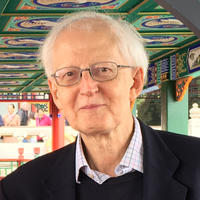
Professor Peter Hore FRS is Professor of Chemistry at the University of Oxford and Emeritus Fellow of Corpus Christi College. His research interests centre on trying to unravel the biophysical mechanism that allows migratory songbirds to detect the direction of the earth's magnetic field as an aid to navigation. |
Our 2023 Autumn Chemistry Conference was recorded and you can catch up below:
Please note: There are sections of Claire Vallance's talk that feature a live demonstration using an air hockey table. To access the top-down camera of this at the appropriate times, you will need to cycle through the camera options via the 'Show next stream' icon (at the top right corner of the video player, not the 'Tile' option).

Q&A - Professor Claire Vallance
About the speakers:

Professor Tom Brown is Professor of Nucleic Acid Chemistry in the Departments of Chemistry and Oncology. His research interests centre on nucleic acid chemistry and its applications in biology and medicine. He is co-inventor of several technologies for genetic analysis, is co-founder of three successful Biotech companies; Oswel, Primer Design and ATDBio, and has published over 450 research papers and patents. |

Professor Claire Vallance is Professor of Physical Chemistry in the Department of Chemistry, Tutorial Fellow in Physical Chemistry at Hertford College, and until July 2021 was President of the Faraday Division of the Royal Society of Chemistry. She has research interests spanning chemical reaction dynamics, the development of laser spectroscopy techniques for chemical sensing, and the application of mass spectrometry and spectroscopy in clinical medicine. |
Our 2022 Autumn Chemistry Conference recorded talks and links to further Q&A are available below.

Ben Shennan is a 3rd year DPhil student in the group of Prof. Darren Dixon. He discussed his forays into natural product synthesis, targeting molecules isolated from a sea sponge from Papua New Guinea and a Chinese mountain shrub.
Further Q&A for Natural Products and the Future of Drug Discovery
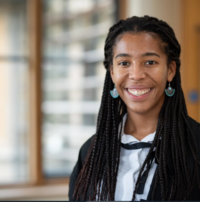
Hannah Asiki is a DPhil student on the Wellcome Trust Chemistry in Cells programme. She is undertaking a collaborative project with Prof. Ed Anderson (Department of Chemistry) and Dr Richard Wheeler. She discussed her journey to chemistry at Oxford and her current collaborative project synthesising anti-parasitic compounds and investigating their mechanism of action.
Our 2021 Autumn Chemistry Conference recorded talks and links to further Q&A are available below.
Regrettably, there is some noise interference, which is particularly noticeable on Prof. Edwards talk.
The Circular Carbon Economy, Professor Peter Edwards
Peter Edwards is Professor of Inorganic Chemistry and Fellow of St Catherine's College, Oxford. He grew up in Toxteth, Liverpool, looked after by two older sisters and a widowed mother, who held down three jobs to support the family. Peter, who received free school meals until he was an early teenager, was the first in his family to attend university, reading Chemistry at Salford where he stayed on to complete his PhD, before going on to study at Cornell University, New York, via a Fulbright Scholarship. He returned to the UK afterwards, to Oxford, as a postdoctoral researcher with John Goodenough (winner of the 2019 Nobel Prize in Chemistry), then on to the universities of Cambridge and Birmingham, before returning to the University of Oxford in 2004, as Statutory Chair in Inorganic Chemistry and Head of Department.
Chemical Journeys: Dr Marie Wong
Dr Marie Wong is currently working for an interdisciplinary commercial company, based in Cambridge. Originally from Malaysia, Marie completed her MChem and DPhil (PhD) at the University of Oxford, the latter in Prof. Ed Anderson’s group. Her research focused on developing chemical methods for the synthesis of complex molecules, with applications in industries such as pharmaceuticals, agrochemicals and materials. During her undergraduate degree, Marie completed placements in the US at UC Berkeley focusing on palladium-catalysis with Prof. John Hartwig and at Yale University with Prof. Scott Miller, looking at peptide-catalysis. Marie’s talk will focus on her career pathway and her DPhil research.
Our 2020 Autumn Chemistry Conference recorded talks and links to further Q&A are available below:
Plastics from another perspective Q&A
Booking details for upcoming conferences, when available, will appear below:
Our schools' conferences are for students and their teachers interested in finding out more about the cutting edge research happening in the field of Chemistry.
We have discontinued our conferences for KS4 students and teachers, but previous conference talks and Q&As can be accessed below.
Our 2023 Spring Chemistry Conference recorded talks and links to further Q&A are available below.
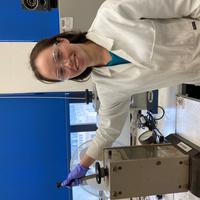
Dr Nicola Kelly is a postdoctoral researcher in the group of Professor Simon Clarke. She discussed her journey to Oxford Chemistry and provided an introduction to the world of solid state chemistry.
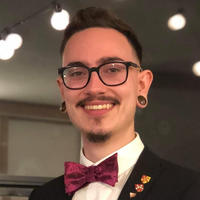
Denis Hartmann is a DPhil student in the group of Dr Michael Booth. He discussed his research into the use of blue light to control DNA functions and make advances in investigating cellular biology.
Our 2022 Spring Chemistry Conference recorded talks and links to further Q&A are available below.
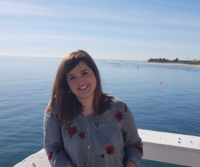
Dr Patricia Rodriguez Macia is a Glasstone Fellow in Inorganic Chemistry at the Chemistry Department, University of Oxford and a EPA Junior Research Fellow at Linacre College. She earned her undergraduate degree in Chemistry from the University of Alicante (Spain), conducting her final year and final project in Chemistry at Aarhus University (Denmark). She then moved to Germany with a prestigious Fellowship from the European Leonardo da Vinci programme to perform a practical project in the Leibniz-Institut für Verbundwerkstoffe GmbH (IVW) research institute. In 2014, she started her PhD at the Biophysical Chemistry Department in the Max Planck Institute for Chemical Energy Conversion (MPI-CEC,) under Prof Wolfgang Lubitz’ supervision - PhD work which was recognised by the Outstanding Doctoral Dissertation Award Ernst Haage Prize in 2017. After completing her PhD, Patricia took up a postdoctoral position at the Inorganic Spectroscopy Department in MPI-CEC, to work in Prof Serena DeBeer’s group, where she applied X-ray spectroscopy to study various metalloenzymes. In 2020, Patricia joined Prof Kylie Vincent’s group at the Chemistry Department in the University of Oxford as a Postdoctoral Research Associate (PDRA), where she expanded her interests to the development of infrared spectroelectrochemical techniques for metalloenzymes engaged in catalytic turnover as well as to single crystal infrared microspectroscopy.
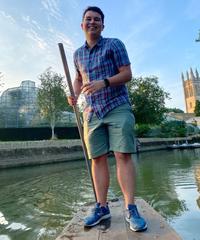
Kam Poon is a DPhil student in Inorganic Chemistry with the OxICFM CDT at the University of Oxford, working with Professor Charlotte Williams researching the 'Synthesis of next generation elastomers and engineering plastics'. In the summer of 2020, Kam completed my MSci in chemistry at UCL, achieving a 1st class Honours. Throughout his time at UCL, he particularly enjoyed learning about inorganic and materials chemistry and their applications to real-world challenges - choosing elective modules covering topics including polymers, metal oxides, thin films and catalysis. In his work, he aims to combine his love of chemistry and problem solving with a passion for environmental and sustainability issues.
Our teacher and technician conferences are an opportunity to meet other professionals within the beautiful and historic city of Oxford. You'll also interact with researchers, take part in talks, workshops, and find out more about our admissions processes. The conference is co-hosted by the department and one of the colleges and includes an overnight stay and conference dinner.
Our inaugural conference took place on 7-8 July 2022. We anticipate our conferences will run every five years, with the next one in 2027.





